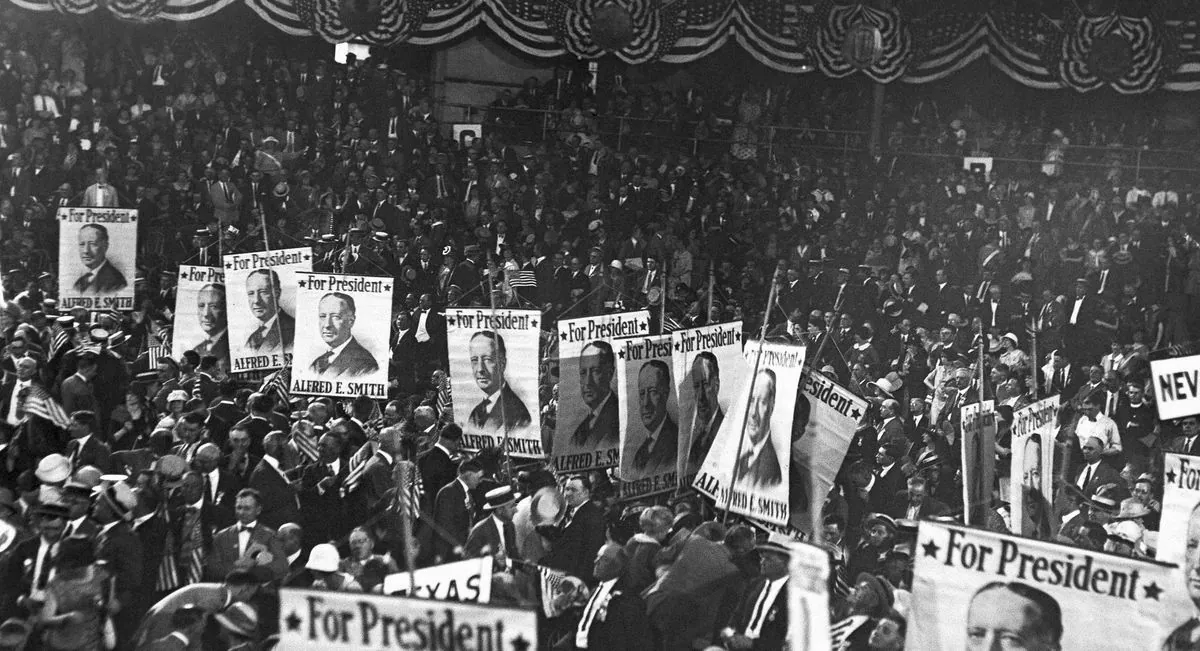The landscape of American political conventions has undergone a remarkable transformation since 1948. In that year, an unimaginable scenario by today's standards unfolded: both major parties not only convened in Philadelphia but also shared decorations. This stark contrast to the current climate of political animosity highlights the evolution of these gatherings from collaborative affairs to meticulously orchestrated events.
Donald Trump's recent appearance at the Republican convention in Milwaukee, just 56 years ago, exemplifies the modern convention's capacity for dramatic moments. The former president's entrance, sporting a bandage after surviving an assassination attempt, initially hinted at a potential shift in his rhetoric. However, his speech ultimately reverted to familiar themes of division and doom.
The conventions of yesteryear were often marked by intense floor fights and unexpected turns. In 1976, Ronald Reagan challenged incumbent President Gerald Ford at the Republican convention in Kansas City, narrowly losing the nomination. Four years later, Ted Kennedy attempted to loosen delegate rules at the Democratic convention in New York, challenging Jimmy Carter.
"Vote your conscience."
This quote from Ted Cruz at the 2016 Republican convention in Cleveland exemplifies the potential for intra-party conflict, as the Texas senator initially refused to endorse Donald Trump.
Conventions have also served as launchpads for political careers. In 2004, a then-unknown state senator named Barack Obama delivered an electrifying speech at the Democratic convention in Boston, coining his famous phrase "the audacity of hope."
Women's representation on major party tickets has been a significant development in convention history. In 1984, Geraldine Ferraro became the first woman on a major presidential ticket. Twenty years later, Sarah Palin's vice-presidential nomination speech energized the Republican base. In 2016, Hillary Clinton achieved a historic milestone as the first woman to secure a major party's presidential nomination.
The 1968 Democratic convention in Chicago remains infamous for the chaos that erupted both inside and outside the venue. As delegates debated the Vietnam War platform, thousands of anti-war protesters clashed violently with police in the streets.
As the Democratic convention returns to Chicago this year, organizers are mindful of potential demonstrations, particularly regarding the administration's stance on the Israel-Hamas conflict. While modern conventions are typically tightly controlled affairs, the possibility of unexpected developments remains, echoing the dramatic moments that have shaped American political history.
